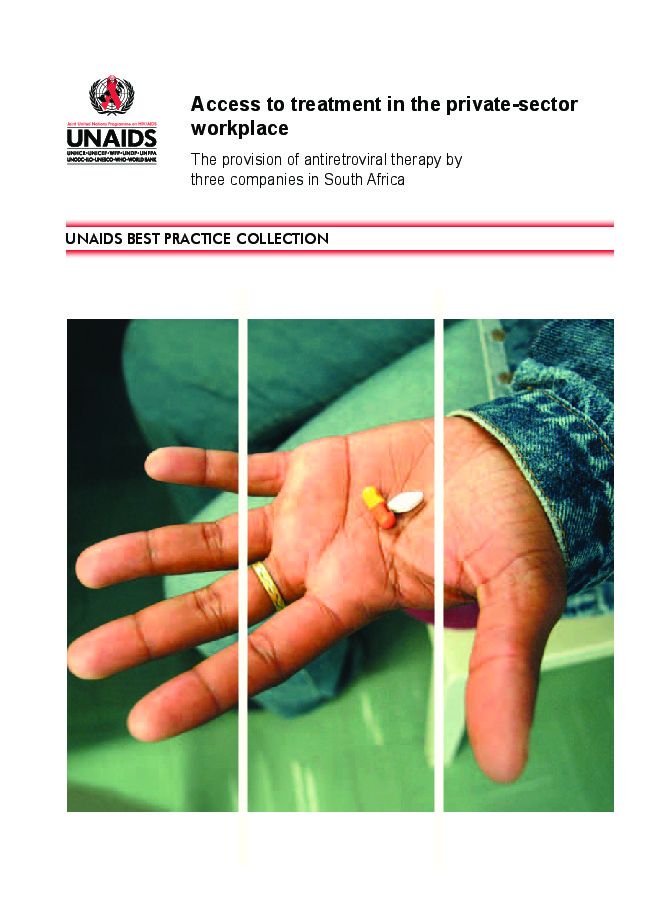Documents
Access to treatment in the private-sector workplace The provision of antiretroviral therapy by three companies in South Africa
23 October 2006
Access to treatment in the private-sector workplace; the provision of antiretroviral therapy by three companies in South AfricaAntiretroviral therapy (ART) is having a huge impact on the lives of those who have access to it. For them, AIDS has become a manageable condition rather than a death sentence. However, for the vast majority of people living with HIV, nothing has changed because neither they nor their countries’ health-care systems can afford to pay for antiretroviral therapy.One source of hope comes from the business sector. The workplace—both private and public—provides many opportunities for extending access to treatment, through occupational health schemes and health insurance schemes. A number of companies now have experience in providing antiretroviral therapy for their employees (and, in some cases, also for dependants). Given the impact of the epidemic, there is a clear economic advantage for companies in offering employees access to treatment and in demonstrating a strong corporate responsibility.After a brief description of the important components of workplace programmes on HIV/AIDS, this case study features three companies in South Africa that are providing antiretroviral therapy to their employees: AngloAmerican, BHP Billiton and Eskom. Detailed descriptions are given of the companies’ antiretroviral therapy and care-and-support programmes, with an analysis of their differing approaches and shared challenges. Public health provision should be strengthened, not undermined, by the contribution of the private sector to HIV and AIDS treatment. The companies profi led in this report are working with government, communities and civil society to extend treatment nationwide, through various projects and programmes and by setting an example of sustainable access to treatment and care.

